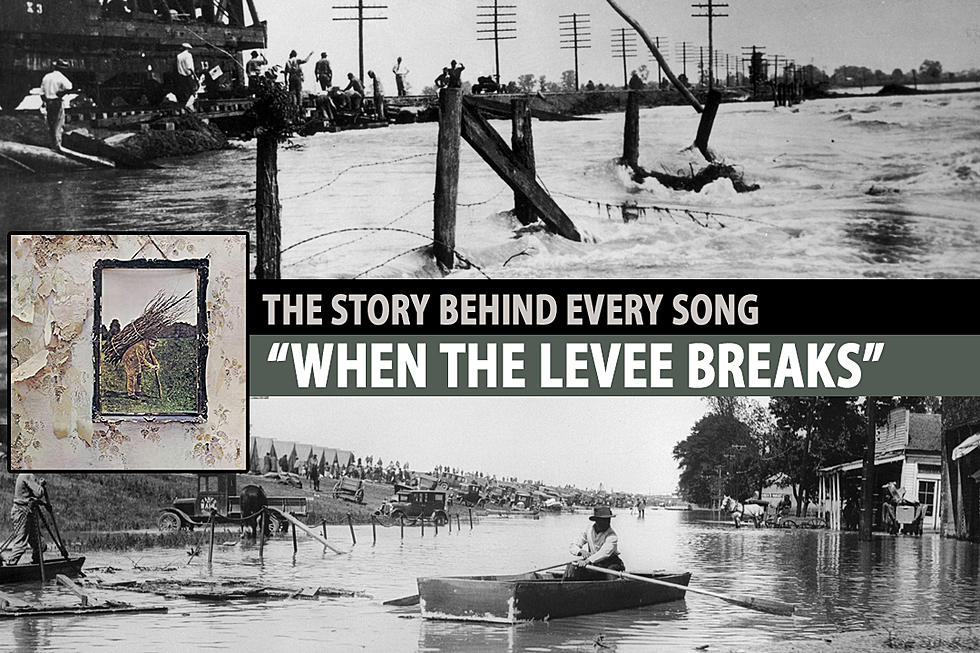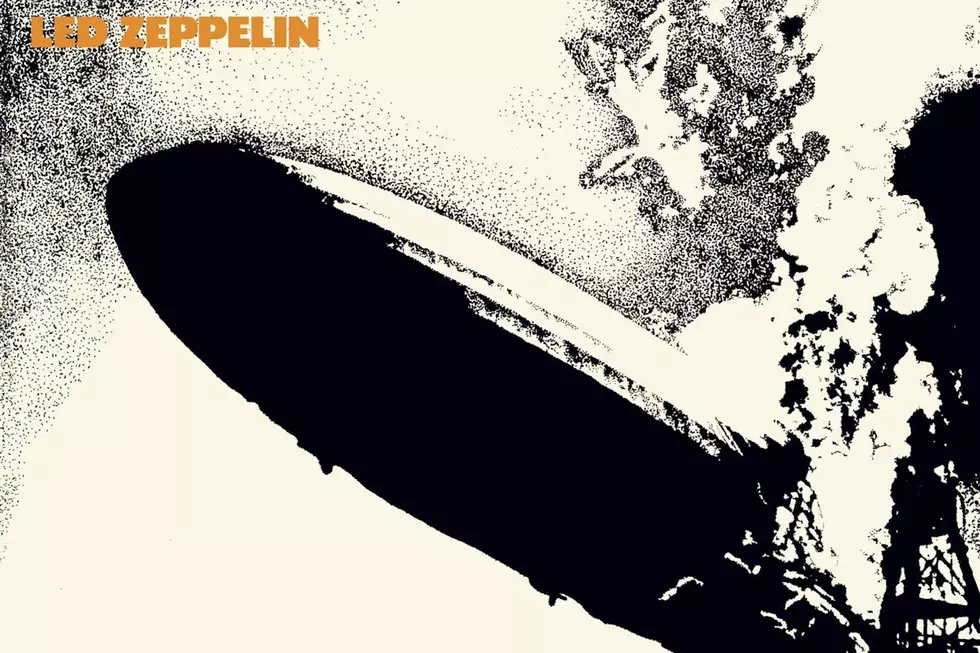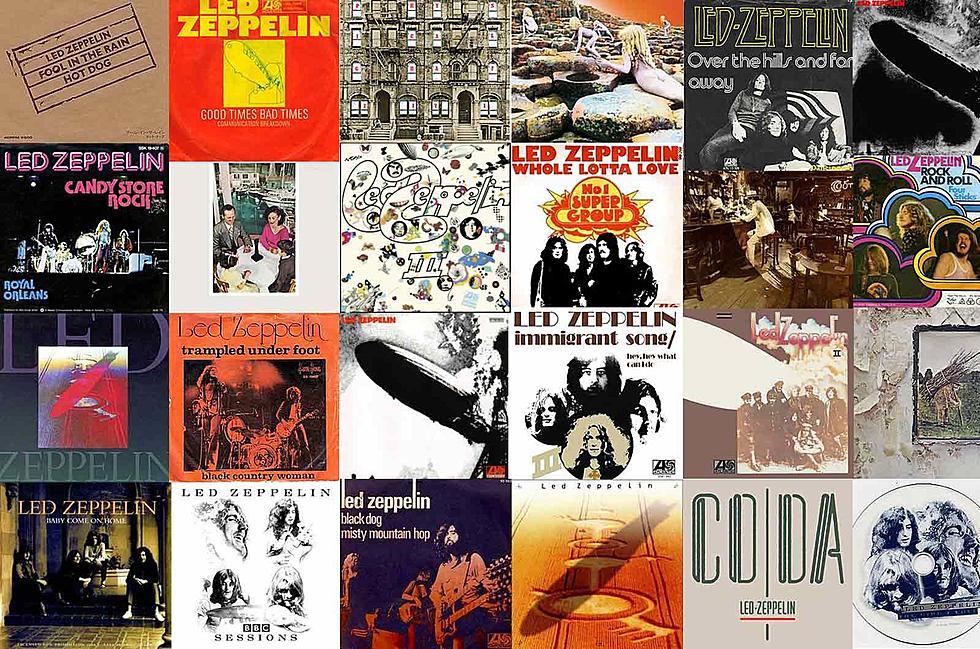
The Real Disaster Behind Led Zeppelin’s ‘When the Levee Breaks’
Led Zeppelin never shied away from revealing their roots.
They deliberately and frequently pulled from their personal record collections, taking inspiration from numerous early rock pioneers and blues legends, while reworking songs from decades before. "There are so many classics from way back which we can give a little of ourselves to take them through the years," Robert Plant told Melody Maker in 1975.
"When the Levee Breaks" from Led Zeppelin IV found the band returning to their passion for Delta blues. The track was originally written in 1929 and recorded by Kansas Joe McCoy and Memphis Minnie, the latter of whom was a leading female blues figure who inspired the likes of Big Mama Thornton, Bonnie Raitt and Mazzy Starr.
"When the Levee Breaks" reflected on the aftermath of the then-recent Great Mississippi Flood, a catastrophe that displaced thousands of people and killed hundreds. Heavy rainfall started in the summer of 1926, swiftly swelling the river to capacity and eventually causing levees to break in more than 100 places over the following year. At the time, Memphis Minnie was living with her family near Walls, Miss., a town on the Tennessee border not far from the banks of the river.
McCoy and Minnie's flood-inspired song joined dozens of others like Charley Patton’s "High Water Everywhere," Bessie Smith’s "Backwater Blues" and John Lee Hooker’s "Tupelo." But "When the Levee Breaks" stood out to Plant, who brought the song to the Led Zeppelin IV sessions.
Listen to 'When the Levee Breaks' by Memphis Minnie and Kansas Joe
They took a page from Led Zeppelin III's complete reimagining of "Gallows Pole," which was based on Lead Belly's "The Gallis Pole." But this time, Led Zeppelin did something far more atmospheric.
"The whole idea was to make [it] into a trance," Jimmy Page said for the 2012 book Light & Shade: Conversations With Jimmy Page. "If you notice, something new is added to every verse. Check it out — the phasing of the voice changes, lots of backward stuff is added and, at the end, everything starts moving around except the vocal, which stays stationary."
Plant added to the original lyrics, while the band decelerated to create more ambiance. "If you slow things down, it makes everything sound so much thicker," Page said. "The only problem is, you have to be very tight about your playing, because it magnifies any inconsistencies. It doesn't work the same way that it does when you speed something up. That makes everything sound tighter than it is. We used the same technique on 'No Quarter.'"
John Bonham's drum performance elevated the track to another level, but it took some work. Plant, Page and multi-instrumentalist John Paul Jones ended up stepping away for a drink, while engineer Andy Johns stayed behind to continue tinkering with Bonham's drums.
"He still complained that he wasn't getting the sound he wanted. I finally had an idea," Johns said in 2010's Led Zeppelin: The 'Tight But Loose' Files. "We got his drums and put him in the hallway, and then put two MI 60 mikes from the staircase and pointed them towards the kit. His kit was very well balanced internally; each drum's volume was consistent with the others."
Listen to Led Zeppelin's 'When the Levee Breaks'
Johns, who was fresh off working on Sticky Fingers, ran Bonham's output through two channels on the Rolling Stones' mobile studio then compressed them.
"I remember sitting there thinking it sounded utterly amazing," Johns added, "so I ran out of the truck and said 'Bonzo, you got to come in and hear this!' He shouted 'Whoa, that's it. That's what I've been hearing!'"
Bonham's introductory drum beat has since been widely sampled by artists from the Beastie Boys to Eminem to Dr. Dre. McCoy and Minnie's original, a surprisingly jaunty tune given the subject matter, also served as the basis for a 2006 update by Bob Dylan that borrowed a few lines of lyrics and the 12-bar structure.
Still, Led Zeppelin cemented the song in rock history with its saturated sound. "That's one thing about blues," Plant told the Guardian in 2014. "You can do more or less anything, around a very vague shell, and the more of it you do, the better you get – until at the end, there’s very few boundaries to it at all."
Led Zeppelin Albums Ranked
Was Jimmy Page Almost Part of a New Supergroup?
More From Ultimate Classic Rock









